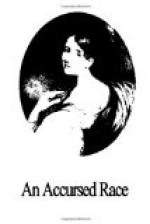Such were literally the arguments by which the Cagots were thrown back into a worse position than ever, as far as regarded their rights as citizens. The Pope insisted that they should receive all their ecclesiastical privileges. The Spanish priests said nothing; but tacitly refused to allow the Cagots to mingle with the rest of the faithful, either dead or alive. The accursed race obtained laws in their favour from the Emperor Charles the Fifth; which, however, there was no one to carry into effect. As a sort of revenge for their want of submission, and for their impertinence in daring to complain, their tools were all taken away from them by the local authorities: an old man and all his family died of starvation, being no longer allowed to fish.
They could not emigrate. Even to remove their poor mud habitations, from one spot to another, excited anger and suspicion. To be sure, in sixteen hundred and ninety-five, the Spanish government ordered the alcaldes to search out all the Cagots, and to expel them before two months had expired, under pain of having fifty ducats to pay for every Cagot remaining in Spain at the expiration of that time. The inhabitants of the villages rose up and flogged out any of the miserable race who might be in their neighbourhood; but the French were on their guard against this enforced irruption, and refused to permit them to enter France. Numbers were hunted up into the inhospitable Pyrenees, and there died of starvation, or became a prey to wild beasts. They were obliged to wear both gloves and shoes when they were thus put to flight, otherwise the stones and herbage they trod upon and the balustrades of the bridges that they handled in crossing, would, according to popular belief, have become poisonous.




